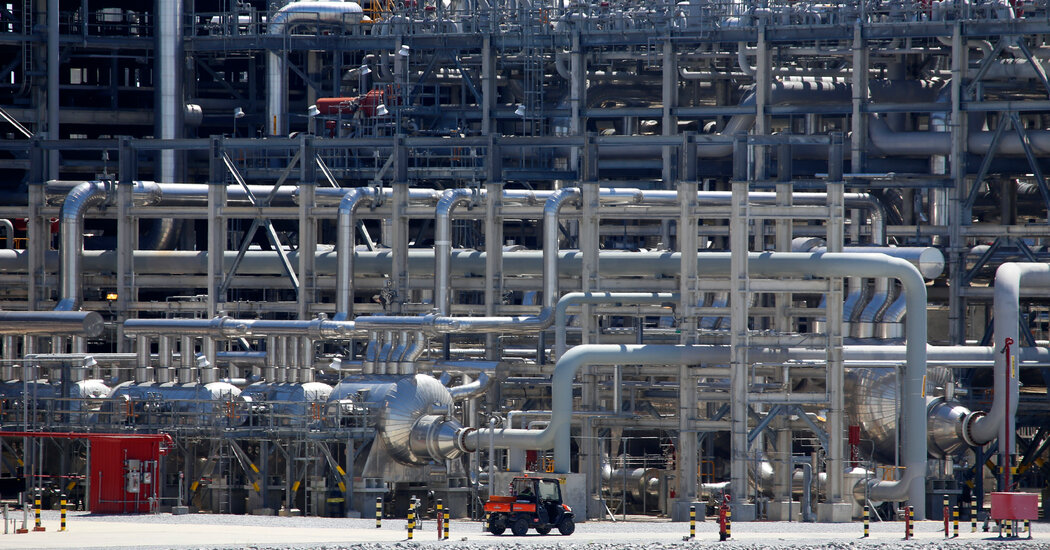The long-awaited study was criticized by the oil and gas industry and could help environmental groups that want to stop new export terminals.
The Biden administration on Tuesday released a lengthy study that outlined the economic and environmental risks of shipping more liquefied natural gas overseas, a move that could complicate President-elect Donald J. Trump’s plans to approve additional gas export terminals.
If the United States were to continue exporting liquefied natural gas in the way that has made it the world’s biggest gas supplier, the study by the Energy Department found, it could drive up energy costs in America by further exposing the domestic market to international pricing. It could also increase pollution in coastal communities where export terminals are built and create more global greenhouse gas emissions.
The study stops short of explicitly saying that it is not in America’s interest to sell more gas around the world, noting that increased exports have also brought economic benefits and improved energy security for key U.S. allies such as Europe. The incoming Trump administration is widely expected to sign off on new facilities that export liquefied natural gas, or L.N.G.
Yet climate activists are very likely to cite the analysis in future lawsuits that challenge new export terminals in court.
“The final decision, of course, is now in the hands of the next administration,” said Energy Secretary Jennifer Granholm. “But we hope that they’ll take these facts into account to determine whether additional L.N.G. exports are truly in the best interest of the American people and economy.”
Ms. Granholm wrote a letter to accompany the study in which she drew much stronger conclusions about the risks of continued L.N.G. exports than were raised by the researchers who wrote the analysis. A “business-as-usual approach is neither sustainable nor advisable,” she wrote.
